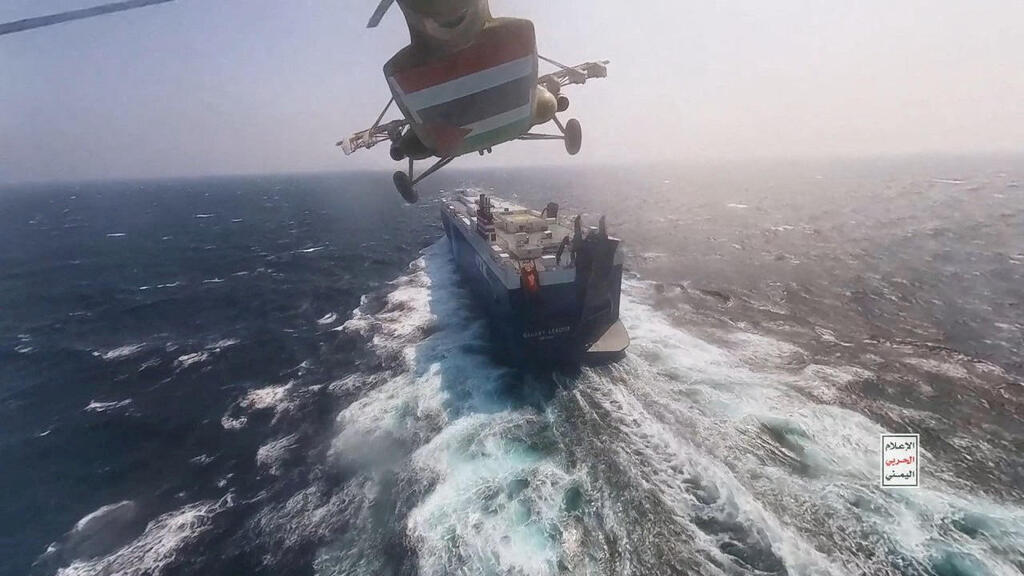Britons may have to brave a shortage of some lines of tea, one of the nation's favorite drinks, after the supermarket industry warned of a risk to supply from shipping disruptions in the Red Sea.
The British Retail Consortium said it had seen "temporary disruption" to some black tea lines, and an industry source said there had been some delays to flavored lines.
More stories:
Although the country's two biggest supermarket groups showed ample supply on their websites on Tuesday, companies have warned in general that the length of disruptions to Red Sea shipping will determine whether consumers see empty shelves in Europe.
1 View gallery


Houthi military helicopter flies over the Israeli-leased cargo ship Galaxy Leader before boarding it and seizing it in the Red Sea
(Photo: Reuters)
The warning of delays is the first for a food item, following several from clothing retailers after Iran-aligned Houthi militia attacked ships in and around the Red Sea, slowing trade between Asia and Europe.
During the war in Gaza, the Houthis, supported by Iran, launch missiles and UAVs at commercial ships in the Red Sea - to "prevent them from reaching Israel" and to impose a "sea blockade" on it. In many cases, these are not ships sailing to Israel or connected to it at all. During the war, the Houthis also attacked ships they identified as British or American ships.
Britain, the world's fifth largest tea importer, gets more than half of its imported tea from Kenya and India, making it dependent on the Red Sea route.
As a result of the Houthi attacks, some of the commercial ships decided to change their route. The alternative route for ships that do not want to sail in the Red Sea requires them to cross the Cape of Good Hope at the tip of the African continent. The route is 10 days to 14 days longer than sailing through the Suez Canal and the Red Sea.
"There is temporary disruption to some black tea lines, but the impact on consumers will be minimal as retailers are not expecting significant challenges," said Andrew Opie, director of food and sustainability at the British Retail Consortium, which represents the major supermarket groups.
An industry source familiar with UK area manufacturing said that while there were a few delays, they did not expect a big shortage.
IEIT director general Marco Forgione said tea may be "the first of many items caught up in this supply chain crisis."
Several major UK clothing retailers, including Next, Pepco Group, Primark and Matalan, have cautioned on the potential impact of disruption to Red Sea shipments.

